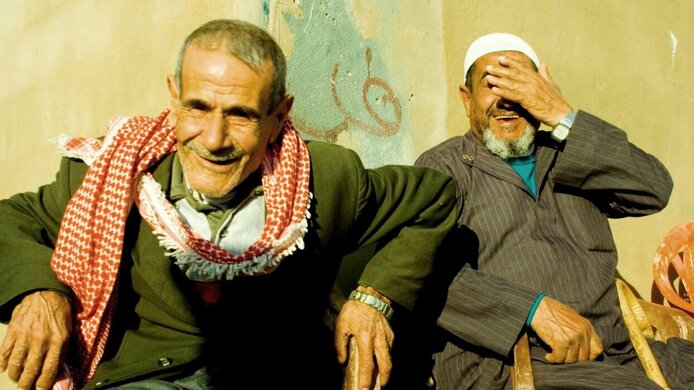The diversity of Austro-Palestinian encounters

With the 1979 summit meeting in Vienna between Bruno Kreisky, at that time Austria's Federal Chancellor and head of the Socialist International, and Yassir Arafat, who led the Palestine Liberation Organisation PLO, Austria became a key player on the political stage in the context of the struggle for a Palestinian state. International efforts to help reach a peaceful solution with Israel have been going on for decades. The social anthropologist Leonardo Schiocchet analysed the situation regarding Austrian-Palestinian relations in Vienna as part of his Lise-Meitner project funded by the Austrian Science Fund FWF. According to estimates, about 5,000 Palestinians were living in Vienna by 2015. Since then, approximately 1,000 further Palestinian refugees from Syria arrived in Austria. Schiocchet, a researcher at the Institute for Social Anthropology of the Austrian Academy of Sciences, explains that he prefers using the term ‘encounters’, because his analysis of relations in terms of impetus and participants reveals no uniform trend or movement. Attitudes towards the “Palestinian cause” vary greatly within the Vienna-based Palestinian community. And among Austrians who take an interest in the issue, those following the lead of Kreisky and who consider an independent Palestine to be a matter of humanitarian importance are only one among several groups.
Affiliations of Arab communities in Europe
Owing to the fact that the Palestinian diaspora dates back to 1948, there are today several generations of Viennese Palestinians – and the same goes for Viennese interested in the Palestinian issue. A variety of Palestinian communities abroad have repeatedly taken shape over the years because of conflicts or political developments. The perceived unity among them exists only from an outside perspective. Shortly after the FWF project began, the great number of refugees arriving in the summer of 2015 generated additional momentum. Leonardo Schiocchet quickly extended his focus from the Austrian-Palestinian relationship to relations between Austria, the Middle East, the Arab World and Islam. Having had many years of experience including first-hand observation in Palestinian communities (e.g. in refugee camps in Lebanon) and speaking Arabic fluently, Schiocchet places the key focus on “how ideas about ‘being Austrian’ and ‘being Palestinian’ affect the encounter”. He wants to be an impartial observer: “It emerges that relationships or commitments are shaped by various experiences that need to be explored”, says the researcher.
No simplification
In 2015, with the influx of many refugees who could potentially become part of the Viennese community, the issue of integration was high on the political agenda. The sociologist rejects such a simplistic view. It is not his intention to assess the prospects for integration of Palestinians who have fled from Syria. Leonardo Schiocchet is interested in “the affiliations of people who had to start a new life somewhere else as a result of flight and displacement”. In the present project, he has become very knowledgeable about the force field and web of relationships surrounding the Austro-Palestinian encounter in Vienna. This would not have been possible without the field research he conducted in recent years. He can draw on experience gathered in countless interviews with Arabs, especially Palestinians, which he conducted in Palestine, Lebanon, Brazil, Denmark, Iraq and Austria. His research requires him to build relationships so as to be able to ask the right questions. Little by little he pieced together commonalities in terms of cultural practice, formative experience, ideas and values that led to a perception of differing social networks within the supposed unity of a Palestinian community. The researcher points out that these networks have quite different leanings when it comes to, for instance, the practice of religion, the right to return, 25 years of debating the two-state solution, Austria as an ally or the practice of folklore.
A new research approach
Based on the project, the researcher has developed a novel, multi-level theoretical approach, which he presented to international experts at the World Congress of the International Union of Anthropological and Ethnological Sciences (IUAES) in July 2018. His investigation could be ground-breaking in terms of research about refugee communities worldwide. In an FWF-funded stand-alone project, Leonardo Schiocchet is currently deepening and expanding this research programme about the Austro-Arab encounter.
Personal details Leonardo Schiocchet studied social anthropology in Brazil and acquired his PhD at Boston University. He specialises in Palestine and his research focuses on forced migration, refugee studies, rituals, affiliations, ethnicity and the relationship between the Middle East and Austria. In 2015, he took up his position at the Institute for Social Anthropology of the Austrian Academy of Sciences. The Lise-Meitner project was one of the driving forces behind the establishment of the Refugee Outreach & Research Network.
Publications





